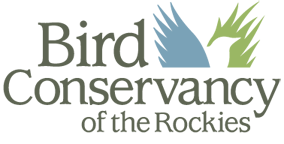Many of the women reading this post can probably relate to childhoods spent catching fireflies, wandering the woods, collecting rocks, asking too many “why” questions of their parents and teachers. They probably got overexcited about the science fair; maybe they considered biology, math, physics or chemistry to be their favorite classes. Perhaps several entered college or are thinking about doing so with aspirations to become a scientist, or maybe they discovered a knack or passion for science later on in life. Some women reading this post have found employment in a science-related field or earned advanced degrees, but a large number of women may have decided to change careers or never pursued their passion in the first place.
Unfortunately, an undeniable disparity still exists between the sexes in science. Fewer women hold upper-level positions in the sciences and are tenured faculty at universities, and salaries are disproportionately lower for females compared with males in similar positions.
What explains this unfortunate phenomenon? A dearth of female role models or mentors? Unconscious biases that men are better at science? Inaccurate perceptions of one’s scientific aptitude? The daunting challenges of balancing motherhood and the work of a professional scientist? The rigors and battles of searching for competitive funding and the ensuing rejection letters? Are fewer girls than boys exposed to the sciences at a young age?
Fortunately, as demonstrated by the number of articles published on the subject, gender disparity within the sciences is being acknowledged and actions are being taken to remedy it. And the gender gap isn’t as obvious in the life sciences as it is in other scientific fields, such as physics. For example, at a recent ornithological conference, I was impressed by the number of female professionals and graduate students presenting. On a personal note, I feel fortunate to be surrounded by intelligent, driven and charismatic female colleagues and co-workers and to have had an amazing graduate school advisor who is both a successful scientist and mother. The executive director of Rocky Mountain Bird Observatory is a woman with a background in science, and RMBO has many female biologists on staff who do influential, impactful work for bird conservation every day.
So what does it take for a woman to become a scientist, and how can we inspire others and stay motivated in our field?
To get some perspective, I asked a few female scientists about their career paths and what they would recommend to girls and young women contemplating a career in science. Many highlighted the value of surrounding yourself with scientist mentors and creating or joining a community of intelligent, fun and inspirational science ladies.
Tammy VerCauteren, Executive Director, Rocky Mountain Bird Observatory:
“I realized I found the most comfort, joy and solace in the outdoors, so I wanted a career that allowed me to enjoy and work to conserve it. I wanted a career where I felt like I was making a positive difference; I could study and investigate and take those observations and turn them into action, programs, messaging and more. I needed something that I could pour my heart and soul into that didn’t stop just because it was 5:00.
“Remember, in order to grow you have to take chances, you have to make mistakes, and you have to push your comfort zone. If you want it bad enough, you can achieve it. Be confident to speak up and share your knowledge. Find what works with your skills and personality; don’t be someone you’re not to try and impress others. Take ownership in your skills and strengths and don’t feel bad about sharing your passion.”
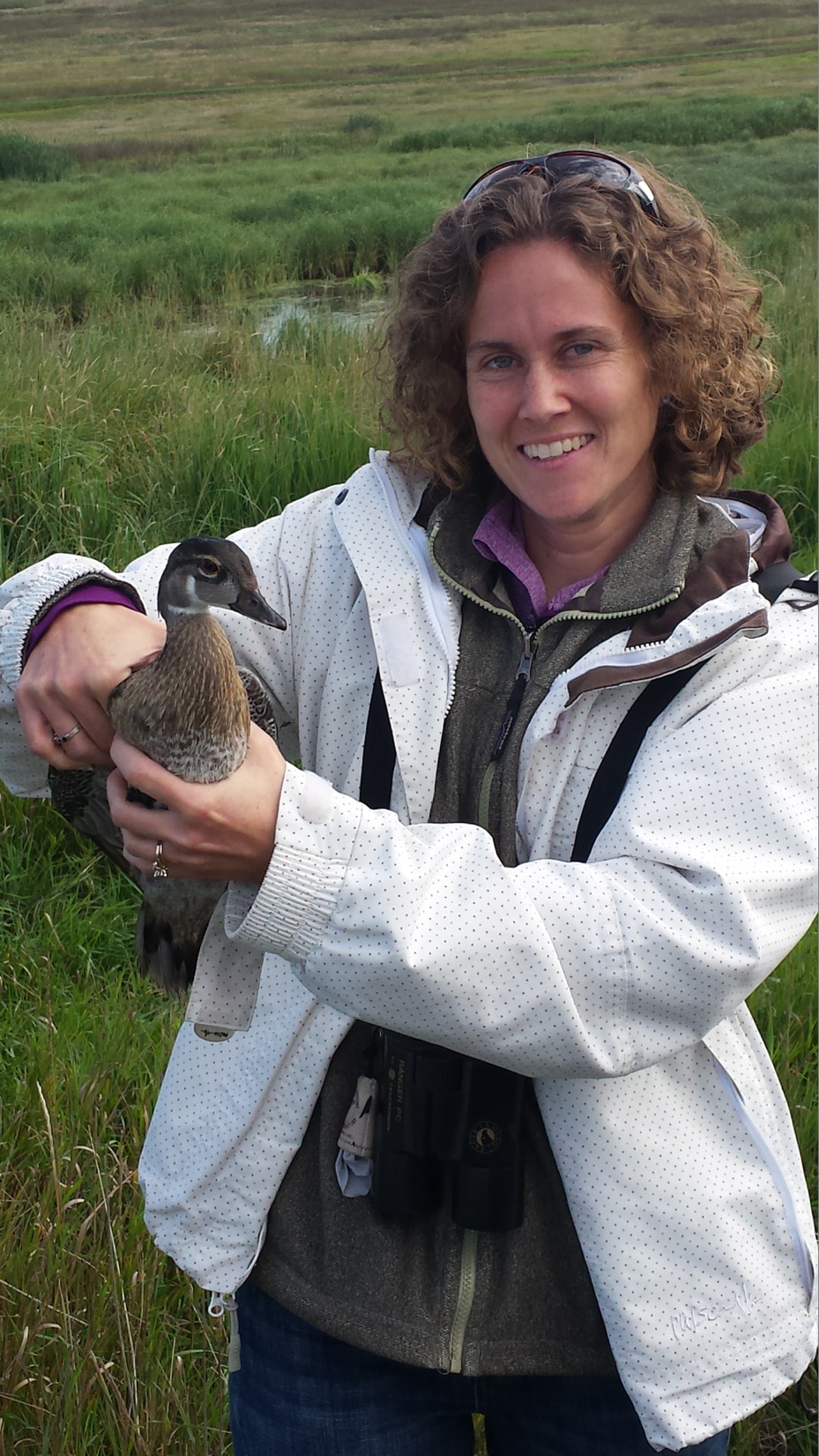
Tammy VerCauteren holds a Wood Duck during a field trip as part of a recent Northern Great Plains Joint Venture board meeting. Tammy holds a master’s degree from the University of Nebraska-Lincoln, where she studied Sandhill Cranes, and has a background in landowner outreach and GIS. Photo by Greg Link, North Dakota Game and Fish.
Jane Zelikova, Ecologist:
“I decided to be a scientist because asking questions came naturally to me. Even though my science classes were the only ones I actually had to study for in college, they were also the only classes that could truly keep my interest. I have thought about changing career paths a lot, but I don’t know of any other field where I would get to work with such amazing people and where I would get so much freedom and intellectual challenge.
“Words of advice: The challenges of science are largely logistic, so when things get hard, remember how lucky you are to get to ask questions and stretch your brain on a daily basis.”
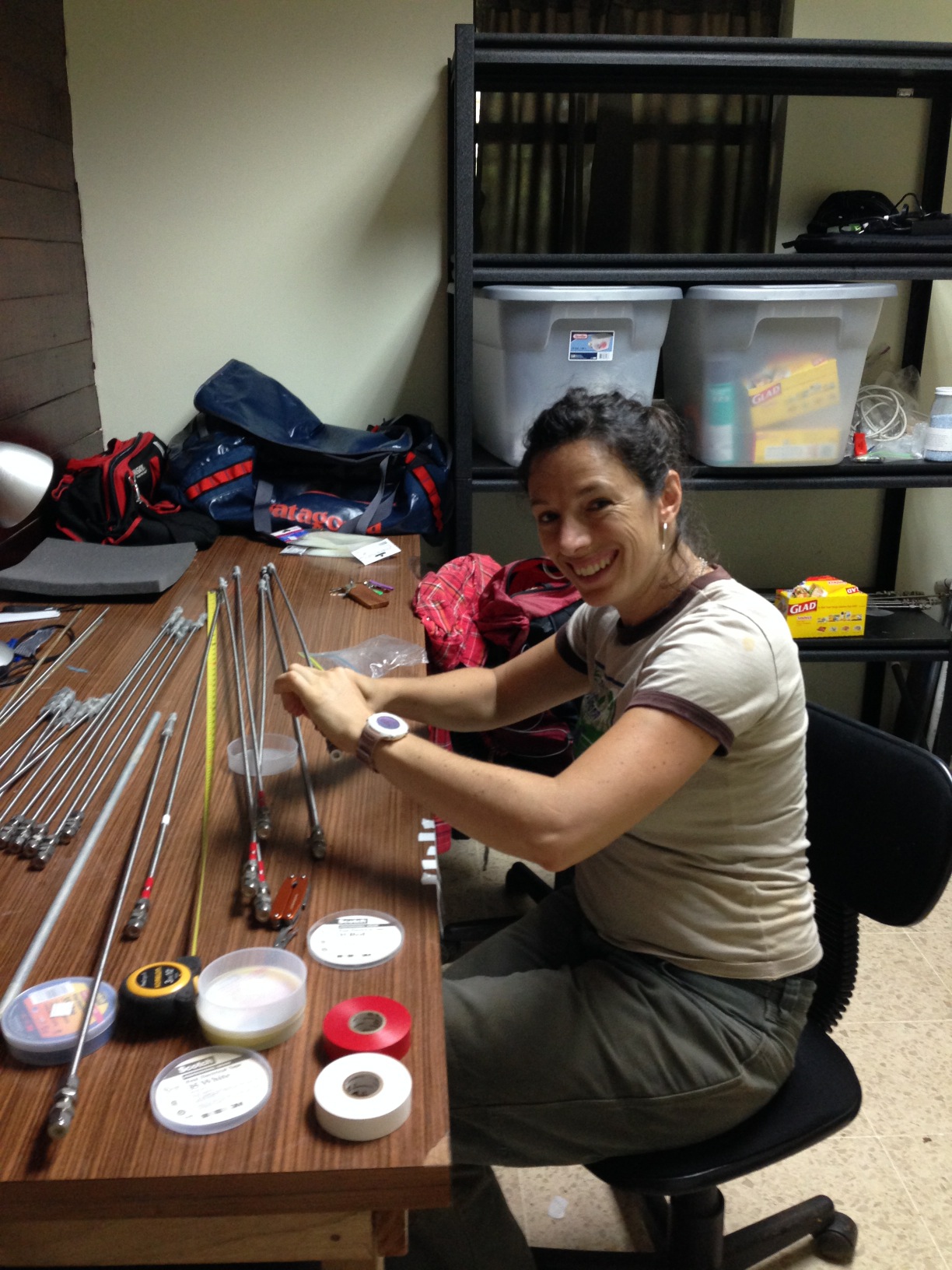
Jane Zelikova assembles gas wells that will be inserted into the soil to collect soil gases. Her research is investigating how leaf cutter ants in tropical forests contribute to soil carbon storage and the ecosystem carbon cycle. Photo courtesy Jane Zelikova.
Erin Youngberg, Biologist:
“I decided to become a scientist because I love learning about how the natural world functions. I yearn for insight to the ecological systems, the details large and small of flora and fauna, and all the things we don’t know yet about this planet we inhabit.
“I have found the early motherhood stage of life to be the most challenging, and balancing the strange and challenging hours often required of scientists, and the obligations that come with being someone’s ‘mommy’. But with any profession, adjustments are made to suit new life circumstances, and I have found the scientific field to be extremely flexible and unbiased toward female scientists.”
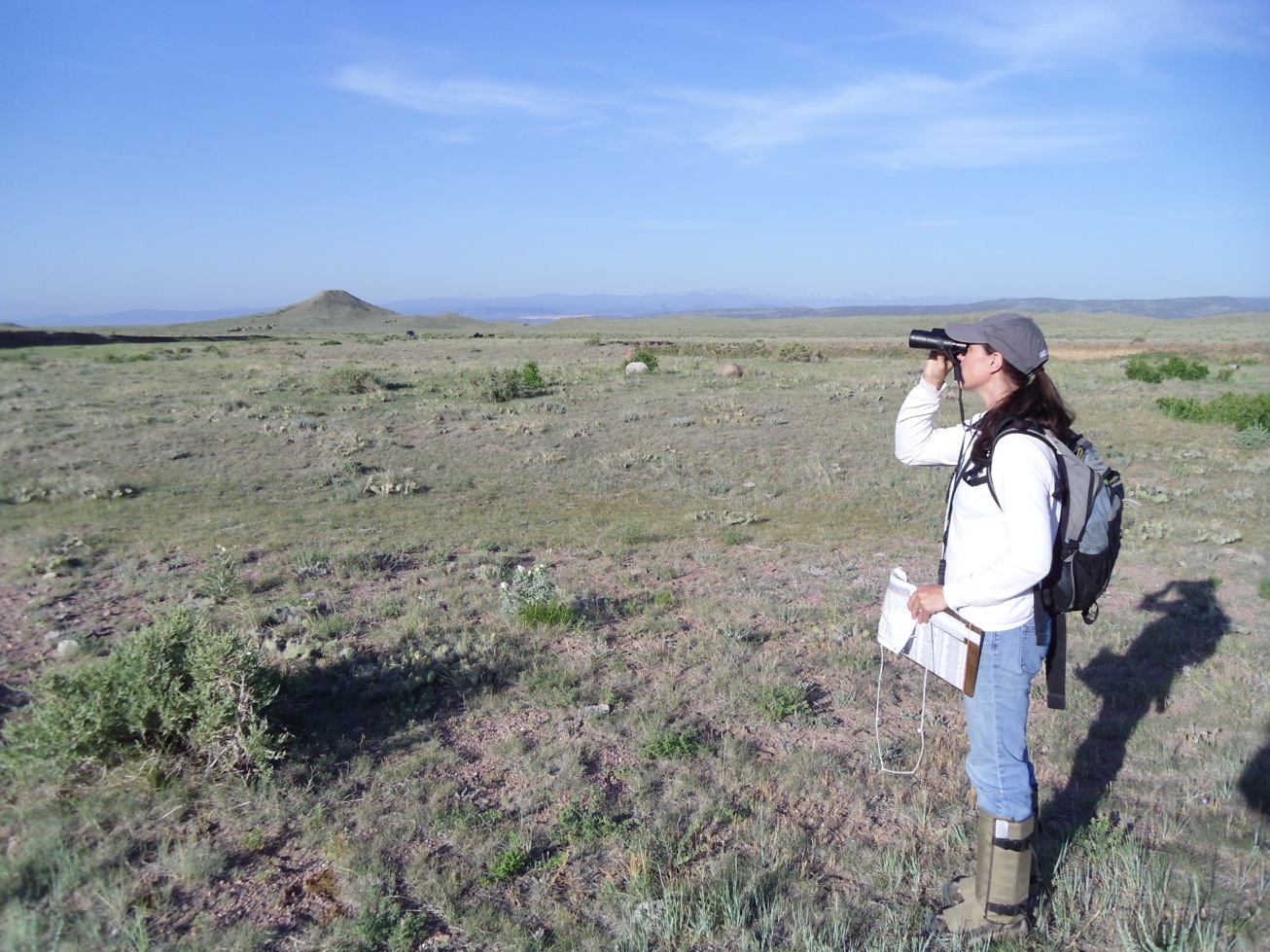
Erin Youngberg surveys grassland birds north of Fort Collins, Colorado, as part of the Mountains to Plains Region project. City-owned properties near the Colorado-Wyoming border represent some of the most significant grasslands in northern Colorado and support populations of more than 20 high-priority bird species. Photo by Teddy Parker-Renga.
Micah Hahn, Epidemiologist:
“I have basically let my natural interests guide my career path. I took classes I thought were interesting in undergrad, and when I started to see connections between my ecology, medical sociology and global health courses, I figured that I could follow a career path that would allow me to study issues that met at this intersection. I also love traveling, so I knew I wanted to study ecology and health issues that affected people living in developing countries.
“Study things you’re interested in and volunteer and participate in activities that you think are fun, and you’ll start to see the connections between your interests and find opportunities to move your career down a path that suits you.”

Micah Hahn (center) gears up to do fruit bat roost assessments in Bangladesh. Pteropus giganteus fruit bats are the natural host of the Nipah virus, and information on roost proximity to homes and water sources may impact distributions of human cases of this virus. Photo courtesy Micah Hahn.
Erin Strasser, Biologist:
Myself, I am a biologist with Rocky Mountain Bird Observatory’s International team. My work focuses on developing a better understanding of the habitat use and winter survival of grassland birds.
Personally, I was fortunate in that I’ve known since I was 4 years old that biology was my passion. My first week of college, I snagged a job in a lab studying social birds and the rest is history. I’ve discovered that ignoring stereotypes, engaging yourself in your field in as many ways as possible, not taking no for an answer, spending time observing the natural world, and balancing work and fun will help one become a successful scientist.
There are always opportunities to volunteer or join a club, or send your kids to nature camps such as those offered by RMBO. If you are a scientist yourself, consider mentoring others.
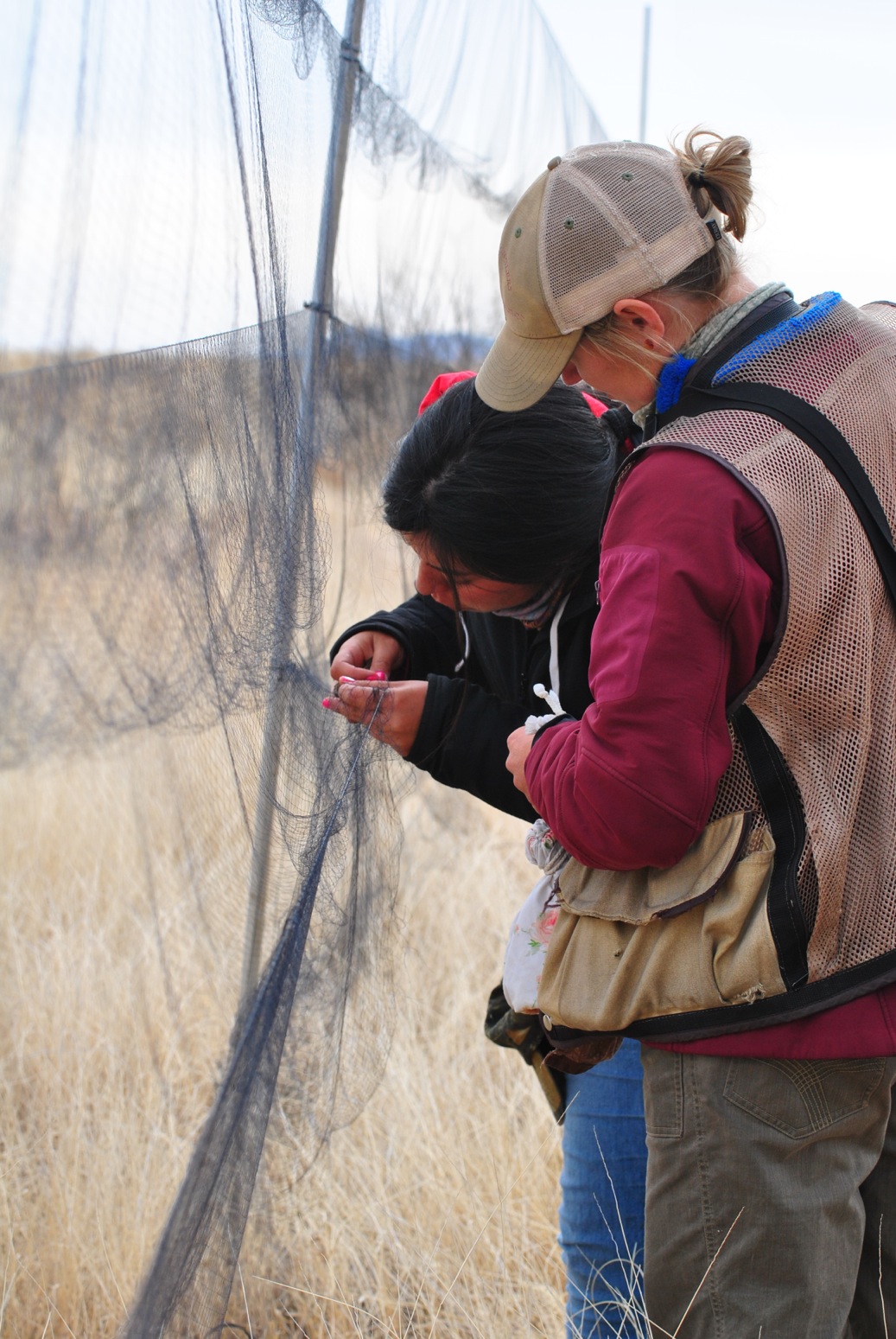
The author teaches technician Mariana Silva Piña how to remove a Grasshopper Sparrow from a mist net. The bird was then banded and marked with a radio-transmitter to help us understand winter survival and movement patterns in declining grassland birds. Photo courtesy Erin Strasser.
Resources for Women in the Sciences:
Association for Women in Science (AWIS)
Earth Science Women’s Network (ESWN)
Nature‘s Women in Science series
American Association of University Women (AAUW) study: Why So Few? Women in Science, Technology, Engineering, and Mathematics
~ Erin Strasser, Biologist

